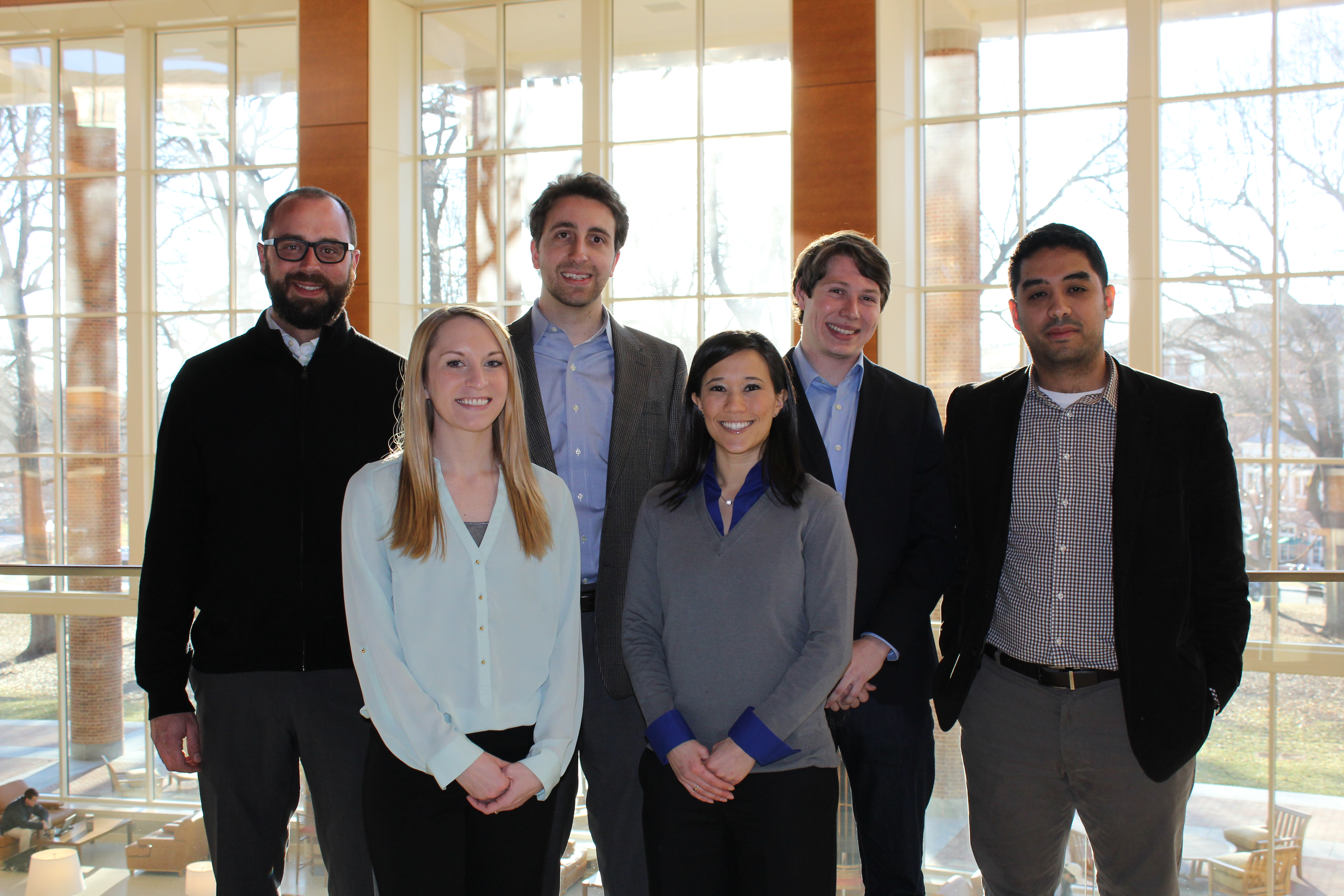
Move over, pink. The fight against breast cancer now wears Old Gold and Black as a team of graduate students from Wake Forest Schools of Business, Law and Medicine work together to take a promising, but underfunded, cancer therapy to market.
“It’s Pro Humanitate in action,” said Gonzo Estupinan (MBA ’14), of his participation in the Breast Cancer Startup Challenge, a joint effort by the Avon Foundation, the Center for Advancing Innovation and the National Institutes of Health National Cancer Institute to advance emerging breast cancer research technologies faster in an entrepreneurial setting. “I thought it might be a long shot, but with the right team, we’d have the opportunity to touch the lives of thousands, if not millions, of people. And I just couldn’t pass that up.”
Today, that “long shot” is one significant step closer to becoming a reality in battling the second most commonly diagnosed cancer among U.S. women. The Wake Forest team, now known as Bespoke Therapeutics, recently was named a finalist in the national challenge.
Over the next few months, Estupian and his teammates John Hodnette (JD ’15), Andy Bowline (MBA ’14), Alison Arter (Ph.D. ’14), Kyle Murrah (Ph.D. ’14) and Janel Suburu (Ph.D. ’14) plan to take a National Cancer Institute invention to market.
“To develop a convincing business plan, we had to take many different factors into consideration,” Murrah said. “The technology is in an early state, so that required that we address potential roadblocks that we’ll encounter during development. We also have to consider FDA regulations. Our company plans to use this technology as a next-generation cancer therapeutic and there are many regulatory requirements that must be met to take this to clinical trials.”
As Murrah explains it, the technology delivers therapeutic agents into human cells by harnessing the ability of viruses to bind and enter host cells. But instead of using a full, intact virus, it is a lab-created one unable to replicate within the host cell. So, it delivers very targeted treatment.
“The technology is very customizable to meet the needs of specific patients and end users, which is how we came up with the name Bespoke,” said Suburu. “We aim to develop unique treatments and biomedical research tools to improve the patient quality of life and accelerate biomedical research.”
The student team has lofty ambitions and a platform to launch their new company once they are granted a license to the technology in the next phase of the competition. They will seek funding to allow one of the student scientists to visit the National Institutes of Health and begin the knowledge transfer to campus. A mentor from global healthcare company Roche identified through the challenge will offer guidance as well.
Along the way, each of the students leveraged knowledge and skills developed in a Wake Forest classroom or laboratory to complement the team’s needs and goals. It’s a collaboration none of them expected to have when they came to Wake Forest, and one that’s been integral in their collaborative success.
“I learned a lot from working with the business and law students on this project, likely an opportunity I would have never have been presented with if it weren’t for this competition,” said Arter. “I enjoyed understanding the non-science perspective and how everyone’s unique ideas can serve a complimentary purpose.”
“It is always a great opportunity when you can work with students from different disciplines. After all, isn’t this what work will be like after graduation – finding a way to work with people who come from very different academic backgrounds to produce a final product that you can all be proud of? I’ve found this to be the case with Bespoke,” said Hodnette. “We learned about one another’s strengths and how we all fit into the puzzle of making the best final product that we could. I think our ability to pleasantly work together as a cohesive group was one of the reasons we ended up becoming a finalist in this competition.”
Categories: Campus Life, Life on Campus, National, Online, Personal and Career Development, Pro Humanitate, Research, Scholars and Scientists, School of Business, Schools, Student, Students Taking the Lead, Top Stories, Working Together
Headlines
Wake Forest in the News
Wake Forest regularly appears in media outlets around the world.




